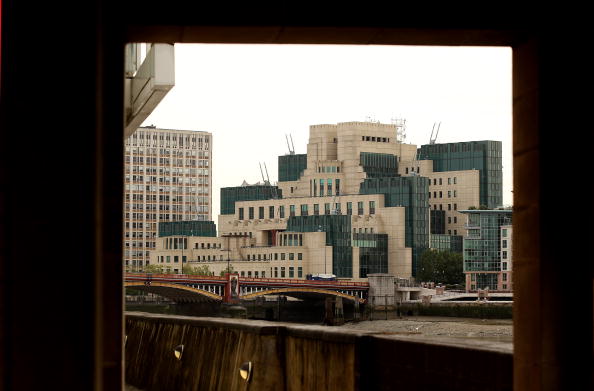Our secret services need to learn how to come out into the open to succeed

We know very little about our intelligence agencies. Secrecy has long been the British way: Harold Macmillan summed the attitude up when, in 1963, he was asked in the House of Commons about Kim Philby’s defection to Moscow. The old actor-manager replied wearily, “It is dangerous and bad for our general national interest to discuss these matters.” The stone wall was the chosen fortification.
The Intelligence Services Act 1994 lifted the veil delicately. It placed the Secret Intelligence Service (SIS, colloquially MI6) on a statutory footing, and, 85 years after its foundation, was the first time the government even admitted that the service existed. Sir Colin McColl, in post since 1989, was the first chief of MI6 to be publicly named, known in the intelligence community simply as ‘C’. In 2010, Sir John Sawers, the only professional diplomat so far to be appointed C, was the first in his role to speak openly to journalists about the service.
C is the only member of MI6 who is officially named. The rest of the service’s 2,500 officers are anonymous, even to their friends and family, working under the cover of Foreign Office civil servants. But last week, a little more light was shed on the number of senior spies who are women, courtesy of The Financial Times. Four directors general who report to C, as well as the then-deputy chief (who has now retired), are female, and for the first time we heard in very general and non-specific terms about their service experience.
It is amazing that such secrecy persists in the modern age of open-source intelligence and freely available data. But MI6 regards this as the ideal position, with as little as possible revealed and the burden of public engagement resting with C (currently Richard Moore, who even has a Twitter account). It is not, however, the universal approach to intelligence services. In the US, the director of the CIA—presently William J. Burns—is a wholly public figure, subject to confirmation hearings by the Senate. Some of his officers are overt, permitted to list their occupation on job applications, curricula vitae and so on, and they can apply for permission to divulge their employer when they leave the agency.
The Americans are not alone. The director of the Direction Générale de la Sécurité Extérieure (DGSE), France’s foreign intelligence service, is a public figure, Bernard Emié, and some of its employees work openly. It even has a public spokesman. Germany’s Bundesnachrichtendienst (BND) identifies its senior leadership and a number of officers. Is our secrecy a national quirk or is it operationally necessary?
Intelligence agencies must retain a degree of secrecy. The clue is literally in the title of the service. Some officers will be required to conceal their identities as part of their duties in some circumstances, and it would be both unsafe and counter-productive for every employee to be listed in a directory. But there is a tendency towards reticence in some of the UK’s institutions of government, as if information was a currency which is automatically devalued when it is disclosed.
MI6 has worked hard on its image in recent years. McColl called James Bond “the best recruiting sergeant in the world”, but the 007 films have not presented a realistic picture of what the service really does. It has made efforts to recruit from more diverse backgrounds, fighting the stereotype of spies as public school and Oxbridge-educated toffs with brutalised personal lives. As the enemies and the activities of MI6 grow broader, it must have a degree of support and buy-in from the public to carry out its work. And the French have found that as the DGSE has become more open it has gained heft in bureaucratic battles within government. MI6 may have to begin adopting the same approach.
The Secret Intelligence Service is one of the most highly regarded espionage organisations in the world. It is particularly strong in human intelligence—the gathering of information by agents on the ground—and achieved considerable penetration of the Provisional IRA in the 1980s and early 1990s. But it must remain flexible and adaptable, and take advantage of the diversity of the population and the skills of the UK’s world-class universities and businesses.
We punch above our weight, with membership of the Five Eyes intelligence alliance with Australia, Canada, New Zealand and the US and the expertise of GCHQ. Our political and professional masters must remain forward-looking and innovative to wield our strength in intelligence to support international, economic and commercial policy in an unsettled post-Brexit global community.